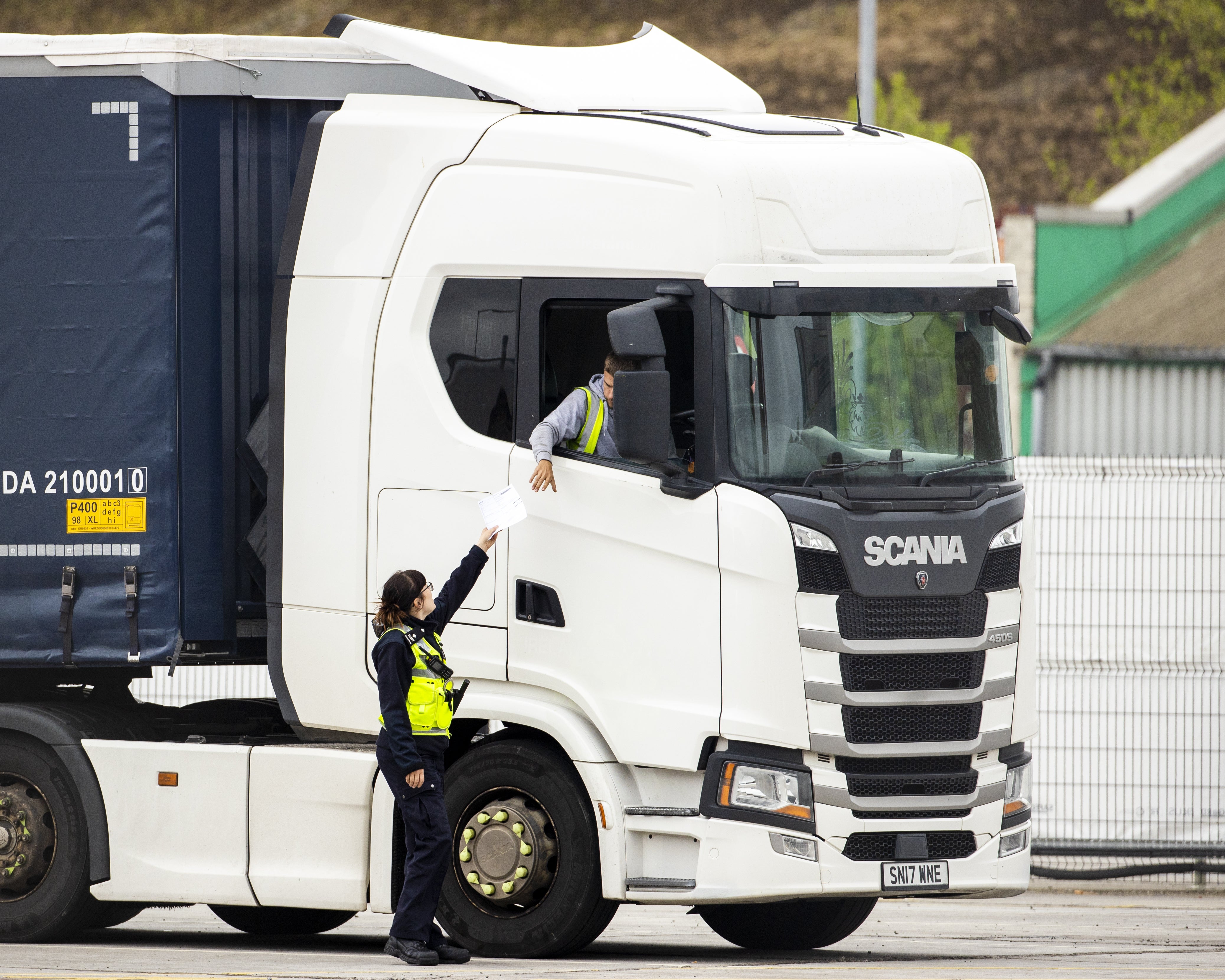More than half of businesses hit by increased regulatory burden due to Brexit
New Brexit regulations have hit 54% of businesses, while businesses also had difficulty sourcing raw materials due to Covid-19.

Your support helps us to tell the story
From reproductive rights to climate change to Big Tech, The Independent is on the ground when the story is developing. Whether it's investigating the financials of Elon Musk's pro-Trump PAC or producing our latest documentary, 'The A Word', which shines a light on the American women fighting for reproductive rights, we know how important it is to parse out the facts from the messaging.
At such a critical moment in US history, we need reporters on the ground. Your donation allows us to keep sending journalists to speak to both sides of the story.
The Independent is trusted by Americans across the entire political spectrum. And unlike many other quality news outlets, we choose not to lock Americans out of our reporting and analysis with paywalls. We believe quality journalism should be available to everyone, paid for by those who can afford it.
Your support makes all the difference.Increased regulatory burdens due to Brexit have hit 54% of businesses, new figures show.
Data, published by the Central Statistics Office (CSO), shows that two in five (40%) enterprises had difficulty sourcing raw materials or intermediate products from suppliers abroad due to Covid-19.
More enterprises (47%) purchased goods and materials from suppliers abroad than supplied to enterprises overseas (24%).
Raw materials (21%) and machinery and other technical equipment (20%) used in a firm’s production were the most common purchases from abroad.
The United Kingdom was the most popular location for both global purchasing and supplying of goods/materials and services, the data shows.
The Northern Ireland Protocol was created as part of the Brexit agreement as a way to avoid a hard land border on the island of Ireland.
It did so by moving regulatory and customs processes to the Irish Sea, creating new checks on goods being shipped from Great Britain to Northern Ireland.
Colin Hanley, statistician in the business statistics division, said: “The results of this publication show the level of participation in global value chains (GVC) arrangements in 2020.
“Almost half (47%) of enterprises, with 50 or more persons engaged, purchased goods/materials abroad for use in their own production, while 24% supplied goods/materials abroad.
“More than a third, 35%, purchased services abroad, while 22% supplied services to another firm overseas.
“Enterprises indicated that raw materials (21%) and machinery and other technical equipment (20%) used in a firm’s production were the most common purchases from abroad, while final goods designed by the company for resale (13%) were the most supplied.
“Information communication and technology services were the most purchased service from abroad.
“The majority of enterprises that purchased or supplied goods/materials and services abroad did so with the United Kingdom.
“Covid-19 impacted GVC arrangements both home and abroad.
Meanwhile more than half of enterprises had been impacted by an increased regulatory burden due to Brexit.
“Due to Covid-19, more than two in five enterprises (44%) had difficulty acquiring raw materials or intermediate products from suppliers domestically, compared with 40% of enterprises having difficulty with suppliers from abroad.
“Meanwhile more than half of enterprises had been impacted by an increased regulatory burden due to Brexit.”
More than nine in ten manufacturing enterprises purchased goods, materials from abroad while 82% supplied goods materials.
Manufacturing also had the highest proportion of firms purchasing services from abroad.
Almost a third of enterprises in the services sector supplied services abroad in 2020.
Almost four in ten enterprises indicated that they purchased goods/materials from the United Kingdom, while 35% purchased from the European Union, excluding Ireland.
Almost one in ten enterprises purchased from a European country outside the EU and UK, while 21% purchased from the rest of the world.
Raw materials used in the firm’s own production process and machinery and other technical equipment used by the business were the most common purchases.
Products designed by another company for resale on domestic or foreign markets was the least reported type of purchase, the data also revealed.
The cancellation of orders or a decline in incoming orders from domestic customers was the most common impact of Covid-19, it further found.
Almost half of enterprises said cancellation of orders or a decline in incoming orders from domestic customers due to Covid-19 has impacted them.
A decline in orders from customers abroad impacted 34% of enterprises.
Covid-19 impacted GVC arrangements both home and abroad.
Due to the pandemic, more than two in five enterprises had difficulty acquiring raw materials or intermediate products from suppliers domestically, while 40% said they had difficulty with suppliers from abroad.